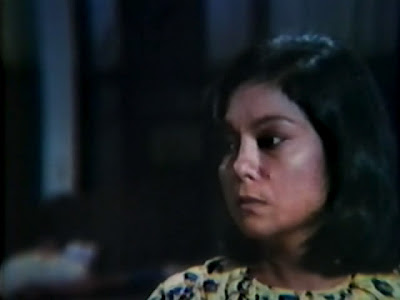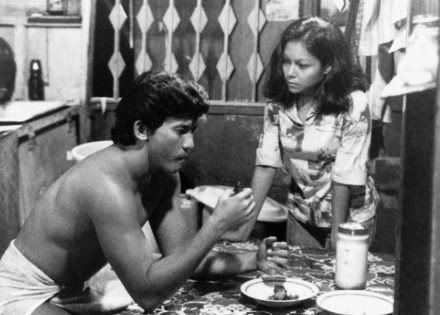Love and marriage.
Although the most highly-honored Filipino film director of all time (he has won the Best Director award at the Cannes Film Festival back in 2009), Brillante Mendoza is without a doubt also the most divisive one. With a body of work that range from the sexually controversial "Serbis" to the shockingly violent "Kinatay", Mendoza is, in a way, an icon of cinematic polarization. Some see him as a maverick hack, but some (including yours truly) also see him as a most important filmmaker whose cinematic unpredictability and rough-edged approach to filmmaking exemplify what modern, eye-opening cinema should be.
"Here is a film that forces me to apologize to Vincent Gallo for calling "The Brown Bunny" the worst film in the history of the Cannes Film Festival," says Roger Ebert, arguably the most famous film critic in the world, while pertaining to Mendoza's "Kinatay". In a way, the negative reception that his films often receive can fairly be attributed to his film's elliptical nature and explicit content. But his latest film "Thy Womb", an official Metro Manila Film Festival Entry and is also a return acting effort from Nora Aunor, may very well be a solid proof of how visually and thematically eloquent Brillante Mendoza really is as a filmmaker even without venturing into the world of violence and fornication. Well, to be exact, he has already exercised his prowess as an intrinsically fine filmmaker by way of his earlier films like "Kaleldo" and "Lola". But for the record, "Thy Womb" is his first film in a very long time that does not wear poverty as some kind of an exploitative mask. Instead, what it has truthfully donned is the entirety of a culture and a tradition, and I can't say that I was disappointed by how he has pulled it off.
Set in a fishing village in Tawi-Tawi, "Thy Womb" is an inexorably rich and humanistic portrait of the island's humble beauty. On paper, it seems that Brillante Mendoza, a most rugged filmmaker, may just be, well, too visually 'rough' to handle a story that's set in a place of such delicate and picturesque beauty. On the contrary, his style proves to be just perfect, and so are the principal actors involved. Bembol Roco, for example, who for the past years has been merely relegated to villainous roles, is very, very believable as Bangas-An, a Badjao fisherman who, along with his infertile midwife of a spouse Shaleha (Nora Aunor), embarks on a search for a new bride who will hopefully bear their first child. Yes, you've heard that correctly, "Thy Womb" is a story of a couple searching for a fertile second wife.
Often laborious but also, to a certain extent, quite humorous, their small adventure to find a second wife is marked with a hint of inevitability and such calm resolve that it's almost impossible not to feel awkward while witnessing how the couple's story unfolds. Now, compare that to its MMFF competition "One More Try"; an almost similar story, same dilemma (kind of), but two different emotional responses: silent acceptance from Nora Aunor's character; mouth-foaming diatribes from Angelica Panganiban's. That's cultural disparity right there.
Nora Aunor, one of the greatest actresses of our time, plays the infertile wife with such hopefulness and acceptance (seen mainly through her ever-eloquent eyes) that, sometimes, watching her brave great lengths just to find her husband a new wife is a bit painful to sit through. Some may even brand her character as a full-fledged martyr by doing so, but we must also bear in mind that she is a devout Muslim, and what she is doing is not just according to her heart's content but also to her religion's. So with an objective camera lens to capture it all, Brillante Mendoza, armed with an uncharacteristically poetic visual sensibility, makes us feel the strains of such a situation without handing down any judgments.
For a country of great religious divide like the Philippines, it's almost impossible to sanction acts in a univocal light, and "Thy Womb" just goes to show that an extramarital scandal in one religion can just be interpreted as nothing but pure tradition in another. And for Brillante Mendoza, a filmmaker whose works are characterized by images of great sociopolitical decay, it's refreshing to see that he has finally took on a story of great sociocultural relevance. "Thy Womb", despite its tendencies to beat around the bushes, is a lyrical film that resonates far beyond its geographic boundaries. Finally, Brillante Mendoza has graduated from poverty porn to do something entirely different but just as powerful. Well, hopefully at least.
FINAL RATING











